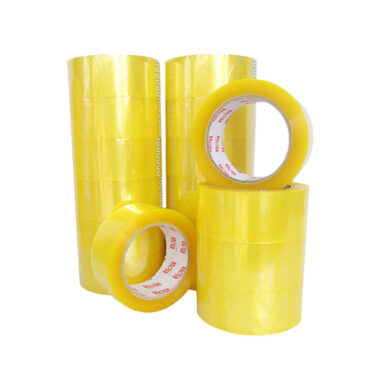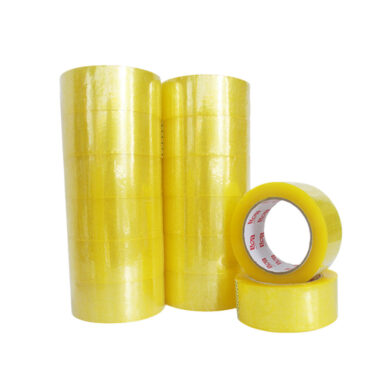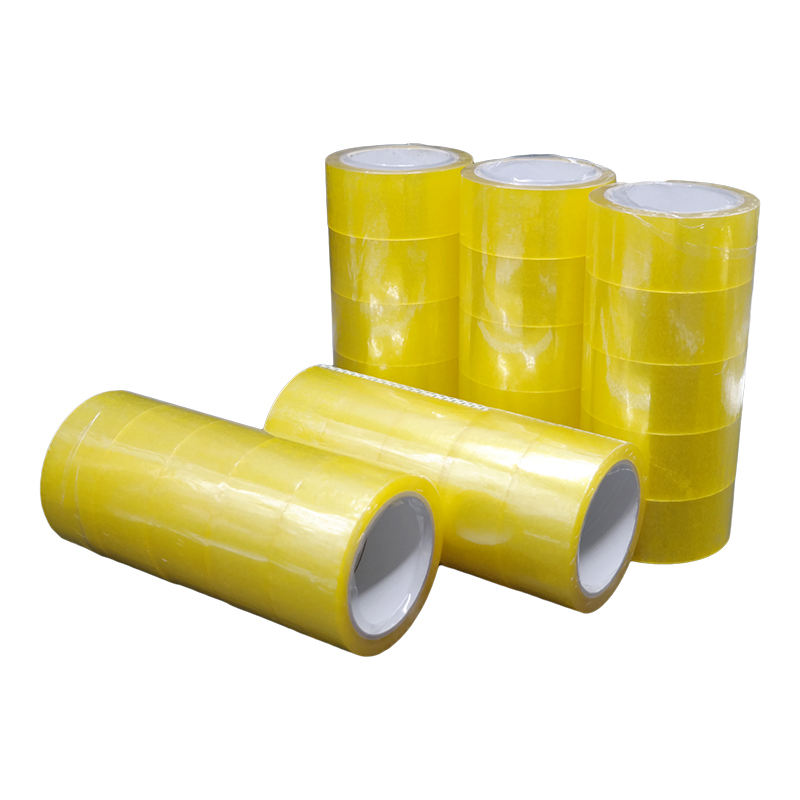The Role of Carton Sealing in Cold-Chain Logistics
Cold-chain packaging is designed to protect temperature-sensitive products like frozen food, seafood, pharmaceuticals, and specialty chemicals. Every component of the supply chain must perform under fluctuating conditions—from refrigerated storage to transit in sub-zero temperatures. One often-overlooked factor is carton sealing. If the tape used to close cartons fails, the integrity of the package is compromised, putting product safety and brand reputation at risk.
Why BOPP Tape Stands Out
BOPP (Biaxially Oriented Polypropylene) tape is widely recognized for its durability and consistent performance. The tape is manufactured with high-tack adhesives that provide strong bonding even in cold environments. Unlike standard tapes that may harden or lose adhesion at low temperatures, cold-chain grade BOPP tapes maintain flexibility and stickiness, ensuring cartons remain sealed throughout the journey.
Key Benefits:
-
📦 High Tensile Strength – Ideal for heavy cartons and bulk packaging.
-
❄️ Cold Resistance – Maintains adhesion in freezing and humid conditions.
-
🔒 Secure Bonding – Prevents loosening during handling and transport.
-
🌍 Custom Printing – Offers branding opportunities for exporters.
Performance Under Low Temperatures
One of the main challenges in refrigerated logistics is condensation and frost formation on carton surfaces. Cold-resistant BOPP tape is engineered with adhesives that penetrate micro-irregularities, ensuring secure bonding even on slightly moist or frosted cartons. This makes it a dependable choice compared to conventional carton sealing options.
For buyers and distributors, sourcing tape from experienced <a href=”https://www.tape-manufacturers.com/bopp-tape/”>Bopp Tape Manufacturers</a> ensures consistent performance and compliance with industry standards. Such suppliers typically test adhesives under multiple temperature cycles, which helps reduce the risk of tape failure during real-world operations.
Choosing the Right Grade of BOPP Tape
Not all BOPP tapes are created equal. When procuring, consider the following factors:
-
Adhesive Type – Hot-melt, water-based, or solvent-based adhesives each behave differently in sub-zero conditions.
-
Thickness – Heavier cartons may require thicker films (e.g., 65–75 microns).
-
Carton Surface – Rough or recycled board surfaces often need higher tack adhesives.
-
Branding Needs – Printed BOPP tape offers both sealing and marketing value.
Working with professional <a href=”https://www.tape-manufacturers.com/”>Tape Manufacturers</a> can help importers and distributors select the most cost-effective grades tailored to their regional climate and shipping requirements.
Applications in Cold-Chain Industries
-
🐟 Frozen Food Export – Secures cartons against frost and moisture.
-
💊 Pharmaceuticals – Ensures packaging integrity in clinical supply chains.
-
🌱 Specialty Chemicals – Keeps sensitive materials stable during transport.
-
🍦 Ice Cream & Dairy – Maintains branding visibility with printed tape.
Final Thoughts
BOPP carton sealing tape may appear as a small detail in packaging, but in cold-chain logistics, it can determine whether products arrive in safe, saleable condition. By partnering with established manufacturers and choosing the right tape grade, buyers can achieve both cost efficiency and consistent packaging performance.



















